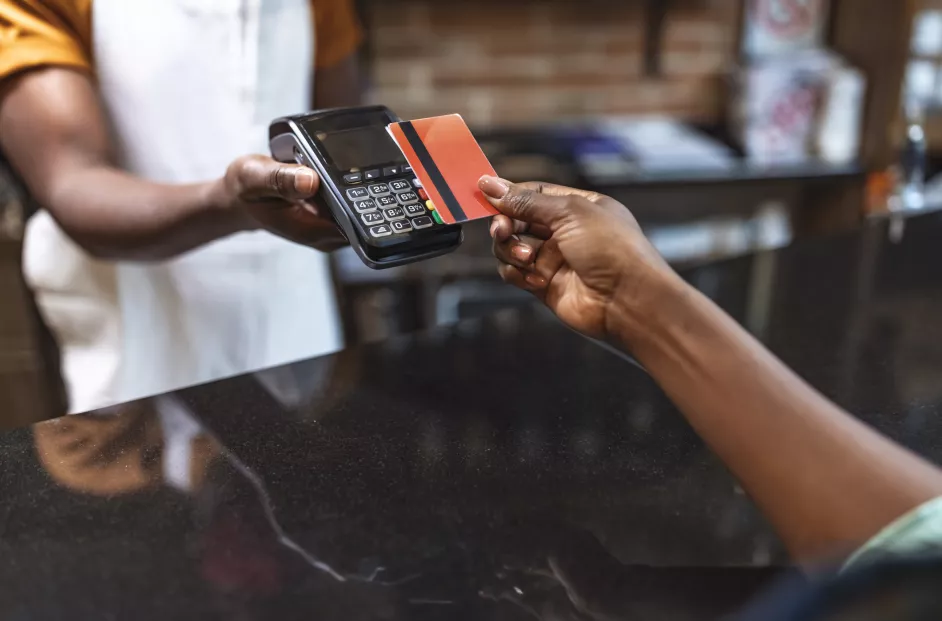Relationship refund: 23% of singles have asked or had someone ask for a refund after a date

On the flip side, Bread Financial study found more than a quarter (28%) of single respondents would go on a date just for the free dinner
COLUMBUS, OH – Feb. 7, 2024 – Bread Financial™ (NYSE: BFH), a tech-forward financial services company that provides simple, personalized payment, lending, and saving solutions, today released its annual findings from a national study¹ that explores financial compatibility in couples and what financial attributes singles are seeking in a partner.
Almost half (48%) of coupled respondents admitted to financial infidelity, with more than 1 in 10 (16%) of these respondents hiding a purchase from their partner because they were embarrassed. Additionally, 22% of coupled respondents admitted to withholding their credit card balances. Looking deeper, more than one in ten (12%) of male respondents said they have hidden cryptocurrency ownership from a partner, compared to only 4% of women.
Finances are lining up more for coupled respondents this year with those admitting to having a different mindset than their partner decreasing from 64% in 2023 to 56% this year. However, there’s still room for financial compatibility to grow with 41% wishing their partner had a more similar mindset. Mindset differences are especially true across generations with 59% of Millennials admitting they don’t look at finances in the same way as their partner. This is compared to Boomers at 29%.
Being single has its pros and cons.
This year’s research found that being single is a course in economics. Budgeting (52%), stretching their money (50%) and learning how to save (39%) are the top three skills single respondents felt they learned as a result of being on their own. Moreover, women (67%) feel more financially independent because they are single compared to men (56%).
At the same time, being single means navigating dating and dealing with the deal breakers that arise when considering a potential new partner. The top deal breakers include making big surprise purchases (39%), asking to split the dinner bill while on a date (35%) and paying bills without checking the amount (31%).
Additional noteworthy findings from the study include:
Bank Account Revelations
Forty-eight percent of coupled respondents who share one or multiple bank accounts with their partner said they uncovered a surprise when they merged finances with their significant other. While some were happily surprised, others found skeletons in their partner's financial closet.
Merging bank accounts revealed bad credit scores, sneaky purchases and financial mismanagement - with one respondent saying their partner “spends frivolously” and “thinks nothing of paying for six storage units for a decade.” For respondents who did not share a bank account, the top reason for not doing so was because they enjoyed their financial independence (46%).
Splurging on Love
How much would you spend to find love? Interestingly, 27% of single respondents have paid for a dating app or extra perks such as unlimited matches. At the same time, how much you pay and who pays matters. This year’s research found more than half of single women (52%) expect their date to pay, compared to only 3% of single men. In some cases, 23% of singles have asked or had someone ask for a “relationship refund” i.e. requested money back for a date after the fact.
Relationship Milestones, Inflation Strikes Again
Inflation is traditionally used to measure consumer purchasing power, but it’s now also impacting relationship milestones. For those in relationships, one quarter (25%) of Gen Z respondents held off on having children, 21% of Millennials moved in together to save money and 19% of Gen Z put off getting married as a result of inflation.
Looking more closely at dating singles – more than a quarter (28%) of respondents would go on a date just for the free dinner and almost one-third (31%) have or would consider dating someone specifically for their wealth.
Relationship Faux Paus
Money-related issues lead to unexpected behaviors, including losing friends over unpaid debts (20%) and couples maintaining emergency funds in case of a breakup (29%).
Gender Roles
According to respondents, while men continue to earn more, they also report paying for more of the expenses in a relationship, with 31% of male respondents saying they pay for almost all expenses (utilities, childcare, etc.) compared to only 9% of women. Interestingly, when in relationships, more women than men have a positive outlook on their relationship with 52% of women compared to 36% of men respondents saying they do not have an emergency fund in place for a breakup or otherwise.
“Every relationship, while different, needs to work toward a solid foundation that includes clear communication, appreciation for each other, and conversations on your financial perspectives and differences,” said Lindsay Bryan-Podvin, Behavioral Finance Expert at Bread Financial. “While many couples are fearful of having money conversations, we know that couples who talk about money report being happier than those who don’t. Anecdotally, in my practice, couples report feeling more connected to one another when they have regular and open money conversations. Talking about money is both vulnerable and intimate; you’re sharing your fears and your life’s dreams. By taking the time to understand those differences and identify similarities, you will be able to build a financial foundation that helps not only improve your financial wellness but also to feel more deeply connected, too.”
¹A sample of 1,659 US consumers participated in this study conducted by Bread Financial through an online quantitative survey that took place between Jan. 2 and Jan. 5, 2024.
About Bread Financial®
Bread Financial® (NYSE: BFH) is a tech-forward financial services company that provides simple, personalized payment, lending and saving solutions to millions of U.S. consumers. Our payment solutions, including Bread Financial general purpose credit cards and savings products, empower our customers and their passions for a better life. Additionally, we deliver growth for some of the most recognized brands in travel & entertainment, health & beauty, jewelry and specialty apparel through our private label and co-brand credit cards and pay-over-time products providing choice and value to our shared customers.
Bread Financial proudly marks 30 years of success in 2026. To learn more about our global associates, our performance and our sustainability progress, visit breadfinancial.com or follow us on Instagram and LinkedIn.

